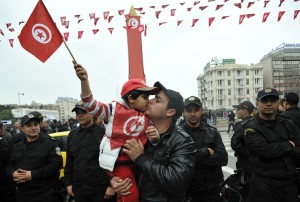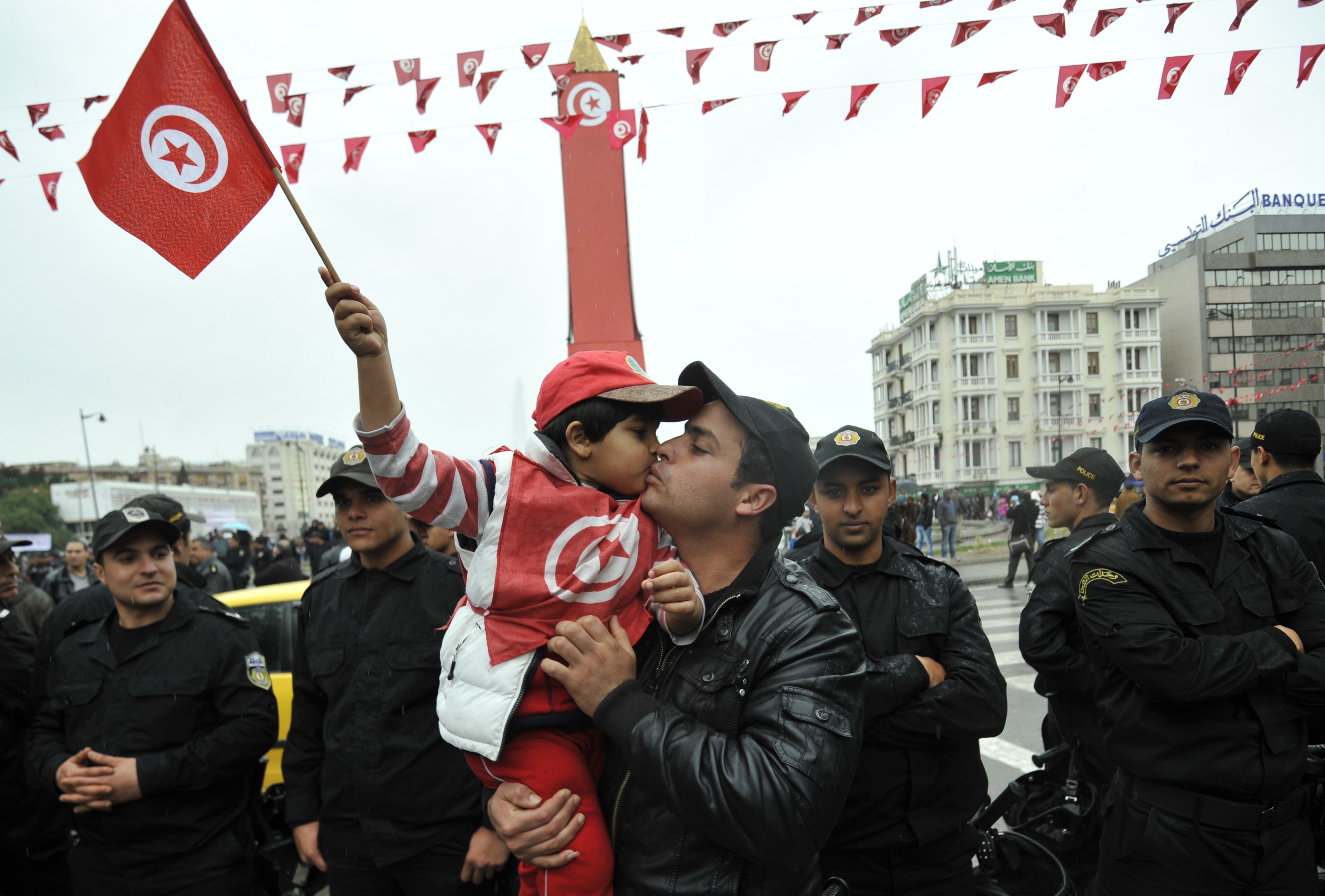
Tunis (AFP) – Tunisians Monday marked two years since the fall of dictator Zine El Abidine Ben Ali in a climate of uncertainty marked by social tension, jihadist threats and a political impasse, with rival factions taking to the streets of the capital.
President Moncef Marzouki, Prime Minister Hamadi Jebali and parliamentary speaker Mustapha Ben Jaafar saluted the national flag at an early-morning ceremony in Tunis to mark the occasion.
The three men, representing the ruling coalition headed by the Islamist party Ennahda, gathered at the Kasbah, next to the government’s headquarters, for the modest ceremony that was attended by the leaders of the main political parties.
Shortly afterwards, Jebali, the secretary general of Tunsia’s main labour union, Hocine Abassi, and Wided Bouchamaoui, representing Tunisian employers, signed a “social pact” at the National Constituent Assembly, or interim parliament.
With unemployment considered a driving factor behind the revolution, and with Tunisia still rocked by repeated protests over poor living conditions, some of them deadly, the signing of the accord was loaded with symbolic importance.
In the city centre, more than a thousand activists from across the political spectrum marched in separate groups down Habib Bourguiba Avenue, the epicentre of the mass uprising that toppled Ben Ali on 14 January 2011 and touched off the Arab Spring.
Ennahda supporters chanted in response to anti-government slogans, while a police cordon separated hundreds of Islamist protesters from their secular rivals near the interior ministry.
Security has been beefed up for the anniversary, with fears in particular that radical Islamist factions could use the occasion to carry out attacks.
Frustration at the government’s failure to address poverty and rising unemployment has mounted since the revolution.
On Sunday, the army deployed in the southern border town of Ben Guerdane after a week of clashes between police and residents demanding development projects to revive the area’s local economy and reduce unemployment.
And the mausoleum in Sidi Bou Said, a prime Tunisian tourism destination, was ravaged by fire at the weekend in a suspected arson attack.
Several shrines dedicated to Muslim saints have been torched or looted in recent months in Tunisia, in acts blamed on hardline Salafis.
Speaking in parliament after the signing ceremony, Jebali, from the ruling Ennahda party, promised to “redouble efforts” to forge a national consensus, and spoke of his desire to enlarge the ruling coalition to overcome the political divisions plaguing the country.
Parliamentary speaker Ben Jaafar, who has strongly criticised the deadlock over the drafting of the new constitution, pledged that the future text would guarantee the goals of the revolution, “establishing a democratic state and the rotation of power”.
But reflecting the failure to reach a consensus so far, no electoral calendar has been drawn up, with the government hoping to hold elections in the summer or autumn of 2013.
Ennahda’s veteran leader Rached Ghannouchi also insisted on dialogue to overcome the political impasse.
“We want to bring all the Tunisian people together, through united political forces capable of dialogue, to agree on a calendar for the big political events, particularly the date of the elections,” he told AFP.
Former premier Beji Caid Essebsi, who heads the secular opposition party Call of Tunisia, expressed concerned about the threat from radical Islamists, speaking at Monday’s ceremony.
“It is the [Tunisian] flag, which represents everyone. But some want to replace it with another, the black flag [of the Salafis]. The people must remain vigilant because there is a threat, as we have seen in Sidi Bou Said,” he told AFP.


